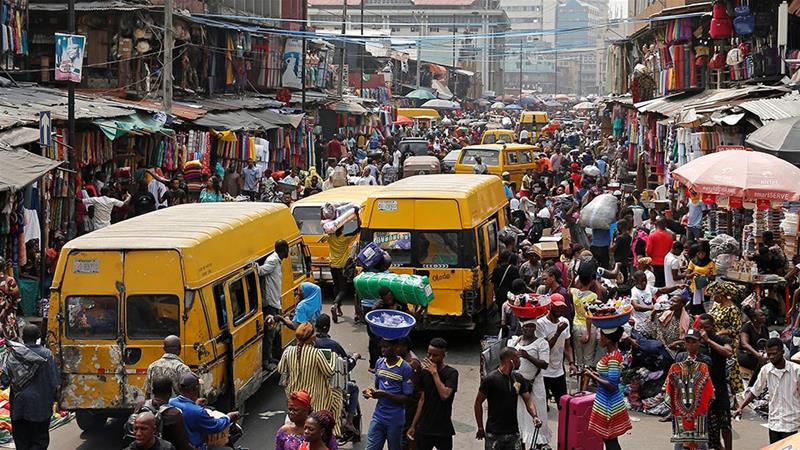By Akanimo Sampson
In spite of ending 2018 with 91 million of its citizens living in extreme poverty, Nigeria burnt an alarming $9.01 billion, which translates to N3.24 trillion from January to September on personal foreign travels, better known as Personal Travel Allowances (PTA).
This fact emerged from a data published by the country’s apex bank, the Central Bank of Nigeria (CBN).
It was, however, first revealed in June the previous year that Nigeria under President Muhammadu Buhari’s watch had overtaken India as the country with the highest number of people living in extreme poverty across the world, with an estimated 86.9 million people measured to be living on less than $1.90, less than N700 a day.
According to available data courtesy of the World Poverty Clock, a web tool produced by World Data Lab, that number increased by nearly four million more Nigerians in just six months.
According to the CBN report, PTA on foreign trips by Nigerians rose from $5.59 billion between January and September 2018, to $9.01 billion in the same period of 2019. This means PTA rose by a high 61.08% in one year.
This was even in spite of the fact that the estimated 643.5 million people living in extreme poverty all over the world had dropped to 592.7 million in the same period.
As of the time of the report, the 90.8 million Nigerians living in extreme poverty constituted a staggering 46.4% of its estimated 195.6 million total head counts then. It, however, rose from the 44.2% of the total population that was recorded in June.
In the mean time, the CBN report shows that Nigeria’s current account balance continues to balloon into deficits due to the services sector huge foreign exchange demand driven by travel and business services. Nigeria’s current account deficit rises again.
While educational travel expense tops the chart, in the period under review, data showed that PTA on foreign travels by Nigerians is mainly on education, health, and other personal travel expenses.
Nigeria blew up $4.55 billion on education travel expenses between January and September 2019. Analysts say this means that the plundering elite continue to rely heavily on foreign education and medical tourism despite efforts by President Buhari regime to curb imports.
Medical tourism gulped $1.92 billion within the period, while ersonal travel expenses, which are largely vacation-related expenses swallowed $2.53 billion.
On the overall, while education took 50.5% of total expenses on personal travels, other personal travels (28%) and Medical tourism (21.3%), PTA gulps $58.7 billion in 10 years
The CBN data also showed some worrisome trends, as foreign travel expenses continue to drive the country’s current account balance into negative. For instance, in the last 10 years (2010– 2019), Nigeria spent an alarming $58.7 billion on PTA.
Analysis of current account balances for the last 10 years showed that travel expenses swallowed 88.5% of the impoverished country’s current account deficit.
In the third quarter of 2010 when the demonized Peoples Democratic Party (PDP) heldsway, Nigeria spent $1.63 billion on PTA. Fast forward to the corresponding period of 2019, the figure rose $2.99 billion.
Within the period, expense on education travel took the biggest share, constituting 44% of the total PTA. Education travel gulped $26.3 billion in just 10 years; other travel expenses gulped $16.7 billion, while $10.13 billion was spent on medical travel expenses.
With a zooming population of over 200 million, Nigeria’s economy under a supposedly progressive democrat, Buhari, is still plagued with perennial problems such as poor health sector, decay in the educational sector, low level of infrastructure, rocketing unemployment rate among others.
Arguably, key investments into critical sectors in the country continue to be elusive often due to poor incentives and ease of doing business. Due to the bad state of infrastructures in the country therefore, Nigerians who can afford the luxury to travel seek for foreign education or better quality healthcare abroad squeezing out foreign exchange from the country’s reserves.
The apex bank’s report implies that the majority of Nigerians travel abroad for schooling or reasons like work, tourism, access to better medical facilities and so on. Data recently released by Canada Immigration shows that Nigeria ranked 8th with the highest number of permanent residents admitted to Canada in 2017.
|
This means on a month-to-month basis, Nigerians travel of countries, Canada, the United Kingdom, the United States, India and a host of many other countries. While the number keeps increasing, the demand for foreign exchange surges.
Nigerians also travel to the United States to have children mostly due to high infant mortality rates in the country. This also requires significant forex for personal travels.
As the blundering elite leave the country to enjoy better infrastructures and basic amenities that could have been provided in the country, they sometimes sell nearly all their valuable assets and convert the proceeds into foreign exchange before traveling.
This, according to those who know better, continues to pile pressure on the country’s depleting forex reserves dragging the economy down.

